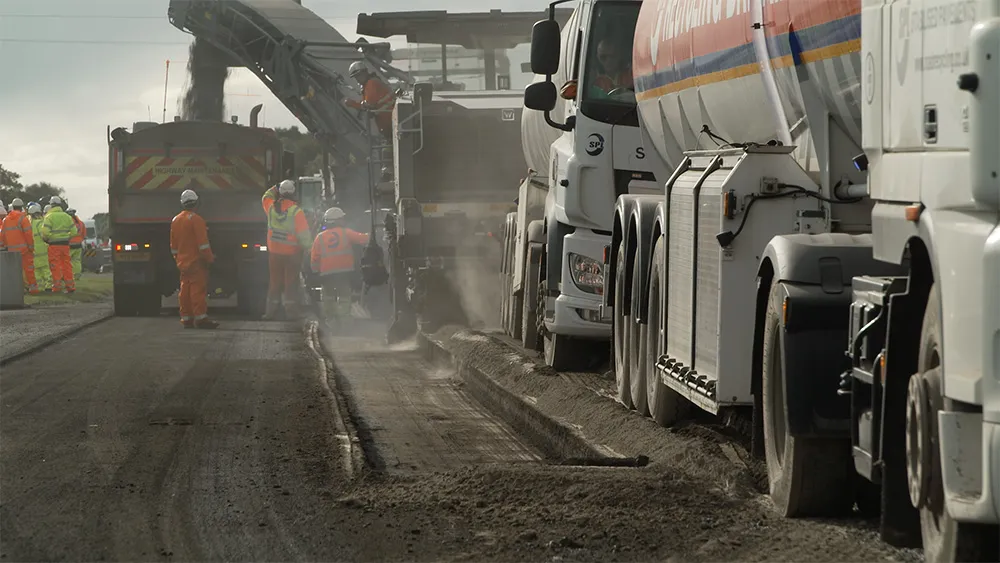Research reveals that demand for asphalt has slipped in the UK. This comes after good sales of asphalt in the UK during 2015 and on the back of two years of market growth. The latest figures suggest that the asphalt market could fall by 3% in 2016, after recovering by nearly 20% in the previous two years.
These are some of the conclusions of BDS Marketing’s annual report on the sector that has just been published, called ‘Estimated outputs of asphalt plants in Great Britain’.
Commenting on the report,
November 17, 2016
Read time: 2 mins
Research reveals that demand for asphalt has slipped in the UK. This comes after good sales of asphalt in the UK during 2015 and on the back of two years of market growth. The latest figures suggest that the asphalt market could fall by 3% in 2016, after recovering by nearly 20% in the previous two years.
These are some of the conclusions of BDS Marketing’s annual report on the sector that has just been published, called ‘Estimated outputs of asphalt plants in Great Britain’.
Commenting on the report, Andy Sales from BDS Marketing said, “The current decline is not due to the Brexit vote. Asphalt markets started to fall at the start of the year. The picture is not consistent across the whole market. There is a largely north-south divide with growth so far in 2016 only in Scotland and across northern England.”
BDS expects the market to stabilise by the middle of 2017 before further growth in each of the next two years. This is due to the timing of major road schemes and an anticipated increase in8100 Highways England expenditure.
The BDS report lists the estimated outputs of all 275 asphalt plants currently operating. It identifies2399 Tarmac as the largest asphalt supplier with around one third of the market. The top five companies also comprise 2297 Aggregate Industries, 2644 Hanson, 3016 Cemex and Breedon. Between them, these companies are estimated to have over 80% of the market. The rest of the market is represented by around 30 companies.
BDS estimates that the typical ranking of companies at a regional level shows that Tarmac is the largest asphalt producer in seven of 10 regions. Aggregate Industries is usually the second largest company in each region.
Asphalt companies are gearing up for improved markets. BDS has identified six new asphalt plants that have opened in the last year. A further six mothballed plants have also re-opened. The consultancy has also picked up proposals for eight new plants at some stage in the planning system.
These are some of the conclusions of BDS Marketing’s annual report on the sector that has just been published, called ‘Estimated outputs of asphalt plants in Great Britain’.
Commenting on the report, Andy Sales from BDS Marketing said, “The current decline is not due to the Brexit vote. Asphalt markets started to fall at the start of the year. The picture is not consistent across the whole market. There is a largely north-south divide with growth so far in 2016 only in Scotland and across northern England.”
BDS expects the market to stabilise by the middle of 2017 before further growth in each of the next two years. This is due to the timing of major road schemes and an anticipated increase in
The BDS report lists the estimated outputs of all 275 asphalt plants currently operating. It identifies
BDS estimates that the typical ranking of companies at a regional level shows that Tarmac is the largest asphalt producer in seven of 10 regions. Aggregate Industries is usually the second largest company in each region.
Asphalt companies are gearing up for improved markets. BDS has identified six new asphalt plants that have opened in the last year. A further six mothballed plants have also re-opened. The consultancy has also picked up proposals for eight new plants at some stage in the planning system.







